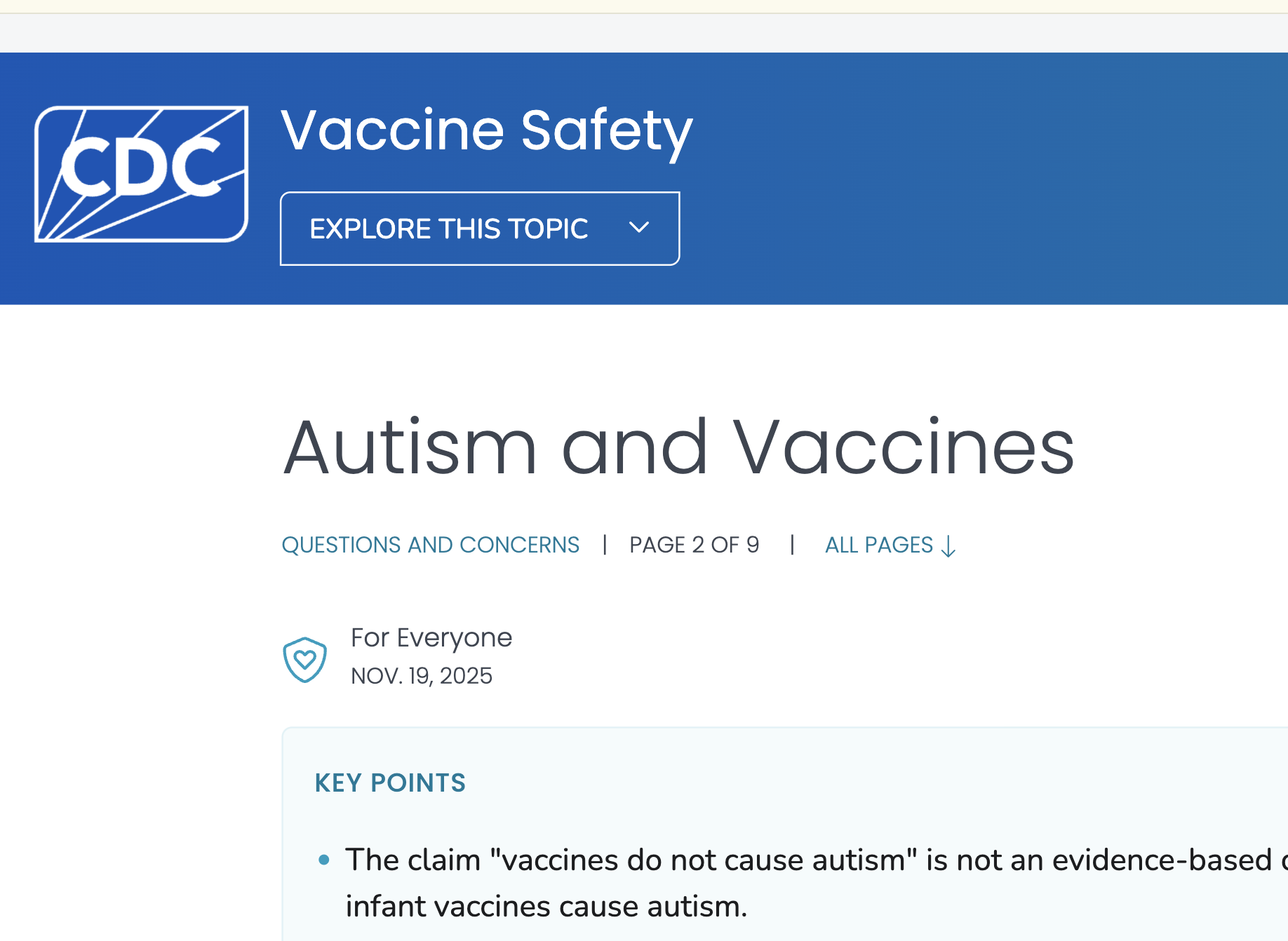
BY MORGAN CHILSON
Kansas Reflector
TOPEKA — A new page on a federal government website that provides inaccurate information about vaccines and autism is concerning to Kansans who work in autism research.
A majority of studies and researchers say there is no connection between autism and vaccinations, but the Centers for Disease Control and Prevention updated a page to share contradictory information.
“The claim ‘vaccines do not cause autism’ is not an evidence-based claim because studies have not ruled out the possibility that infant vaccines cause autism,” the site says.
The page was updated last week, and in an interview with the New York Times, Robert F. Kennedy Jr., secretary of U.S. Health and Human Services, said he instructed the CDC to change the information.
“The information posted on the CDC website unfortunately contains multiple inaccurate or misleading statements,” said Matt Mosconi, director of the Kansas Center for Autism Research and Training. “The CDC message ignores many studies that have been conducted on this topic. And, my expectation is that this statement is confusing for individuals and families, and it has strong potential to be harmful.”
The Coalition of Autism Scientists, which Mosconi and other researchers at K-CART belong to, published a statement saying the harm caused by questioning the safety of childhood vaccines cannot be overstated.
“By altering and distorting the evidence on vaccine safety, the CDC can no longer be relied on to provide the public with accurate information,” the statement said.
Mosconi said if there had been evidence that vaccines caused autism, scientists would have followed that evidence.
“Rigorous study after rigorous study failed to find that link, so we, as scientists, follow the data to identify those factors that are associated with autism and do have potential to be informative for supporting the autism community,” he said.
Kathryn Unruh, an assistant researcher at K-CART, said the new information presented on the CDC site is concerning for several reasons, including whether people will hesitate to vaccinate their children.
Kansas has seen vaccination rates for kindergarteners drop in many areas across the state. The state also had a measles outbreak, which has since ended.
“As an autism researcher, we are also quite concerned with how this may misdirect attention as well as the critical funding we may need for studies that will support autistic individuals and their families,” Unruh said.
Two “very large” and rigorous studies have shown no association between autism and vaccinations, she said. The studies were well-controlled and had large samples. The initial and since discredited study that started the misinformation about vaccines and autism included just 12 children, Unruh said.
A 2002 Danish study included more than 500,000 children and looked at the risks of developing autism in children who were vaccinated and unvaccinated. The study controlled for multiple variables, including the age at which children received vaccines, their gestational age, birth weight and their economic status, Unruh said.
No connection was found between autism and vaccinations in that study.
Another large study in the United States also looked at familial factors because of the high likelihood of developing autism if the individual has a sibling with autism, Unruh said.
“Even if kids already had one likelihood factor for developing autism, they also found no increased association with developing autism and vaccines in those children,” she said.
The information being put out by the CDC on its official website worries Unruh.
“As a scientist, I’m quite concerned that they have ignored decades of rigorous research, including multiple studies that use CDC data,” she said. “On their own website, an archived page now, they do have a long list of studies that they have documented that show no association between vaccines and risk for developing autism.”
Scientific studies have shown a genetic component to autism and other studies have looked at environmental interactions that might increase the risk for autism, Unruh said.
A 2015 study published in JAMA, the journal of the American Medical Association, researched possible connections between children who have a genetic likelihood of developing autism — identified because siblings had autism — and vaccinations causing them to develop autism, she said.
That study found no connections between the two, Unruh said.



